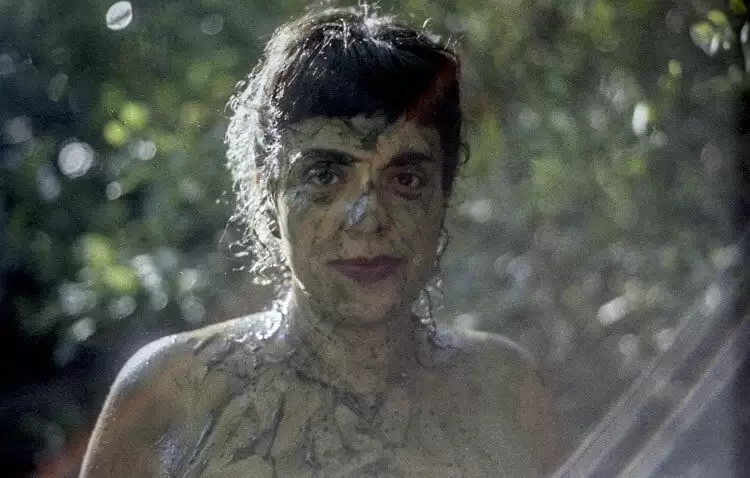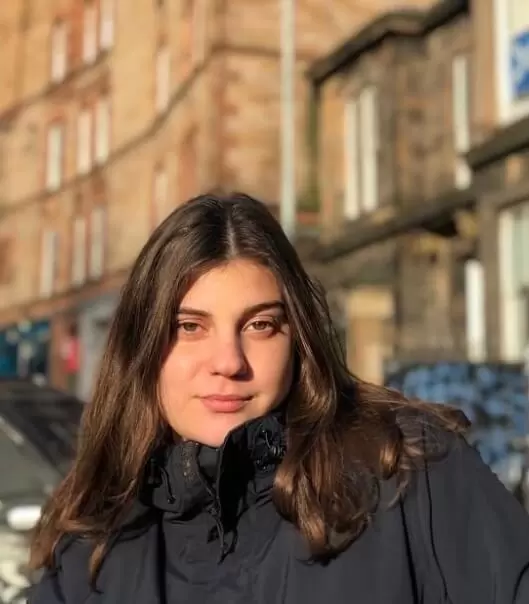Paz Olivares Droguett is a Chilean photographer currently based in Valparaiso, Chile. Her project Volver was selected and featured in FIFV as well as the Floripa na Foto Festival. In 2018 Paz exhibited her first solo show SURCO in Camara Lucida of Valparaiso Gallery.
Paz’s personal life and background is an integral part of the intuitive, creative process behind her photographs, her “desire to capture light”. Paz’s identity as a Latin American woman and mother is reflected in her artistic aims throughout several of her photograph projects.
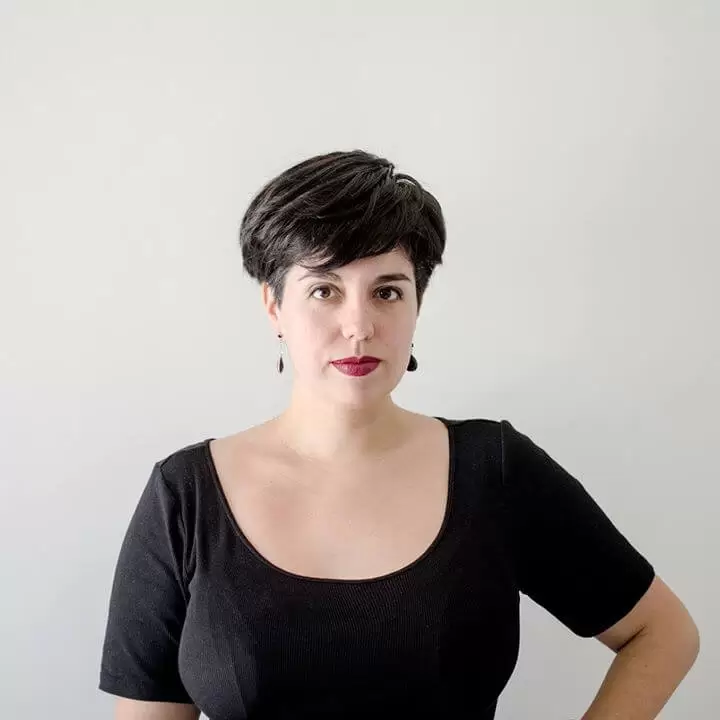
My work is so close to my own life, so the sense of time in my artistic practice is directly connected to the time of my life.
Paz Olivares Droguett
Paz believes subjectivity is an essential part of photography that allows exploring an individual’s reality and truth in the eyes of the creative.
The interview explores her project Sexualidades Femeninas (Feminine Sexualities) where she aims to divest the violence and capitalization of women’s body for a more inclusive and educative portrayal of the diversity of female and non-binary sexualities. Her role as a mother drives her work. The educative purpose is her thought of changing the society of today to educate her daughter and son.
Q: How would you describe your personal relationship to art?
Paz Olivares Droguett: My relationship with art is substantial, basic and intuitive. It started during childhood as a way of seeing and participating in the world. I remember when I was a child, my parents laughed because I would zoom out many times. But for me, it was a kind of meditation. It was very natural for my way of being. My relationship with art came with me; it is innate. I never actually studied art.
Q: When do you know it’s time to take a photograph?
Paz Olivares Droguett: I wanted to take photos before I had a camera as I am an admirer of art. Photography met my desire to capture light. I feel the moment. Photographing is a way of seeing. I always interact with the world by observing it, to look at how the light is.
Q: What is the balance between reality and staging in your photographs?
Paz Olivares Droguett: When I was young, in school, I saw a Mexican movie and read a book called Como Agua Para Chocolate. I was drawn by a sentence in the film “La vera verdad es que la verdad no existe”: the real truth is the truth that doesn’t exist.
Everything in the world is a maybe. Everything is about perspective and the subjective point of view. I need to believe that what I see is real to capture its essence. I don’t pretend that everything I see is real, but this is my truth and what I feel right now is a reality to me.
Q: What is your preferred platform of display of your works and why?
Paz Olivares Droguett: Pictures that are hung is very classic, but I also like music and sound in the background and digital images, I am open to everything. This is also because my career can grow through the internet.
Each work has a perfect display. I value the light of the display format as it is a way to take into consideration the experience of the exhibition for the visitor. The importance of display is the interaction between humans, socially, through intimacy and their subjective interpretations from which ultimately we can grow.
Q: Which contemporary contexts have shaped your experience as artist and the message you try to carry throughout your work?
Paz Olivares Droguett: Everything. Being a woman, Latin American, I was an immigrant in the past. Chile started a revolution a few months ago. When I was younger, I travelled throughout South America: Bolivia, Argentina, Brazil, Uruguay by hitch-hiking. Now I am a mother, and I have two children. I wouldnt be myself without this background. The desire of light that I have experienced in my life has reflected in my photographs. When I have the camera, I can capture a particular moment. Especially with the use of analogue cameras, you value the specific shot because you have 36 options, and it is quite expensive.
It’s been some years that I have associated with Ruday Colectiva, a photograph collective only of Latin American women. It’s essential to change the point of view of the photograph. Me being a woman is reflected in the images take: how I take portraits, which people I take pictures of, how I treat the people later, what relationship I have with them afterwards.
I don’t want to show prejudice in my photographs by the way others depict Latin Americans. Because I come from here, I respect and love my people. I take pictures of protesters in Chile, but I am a protester myself because I need that change that the Chilean Revolution demands.
Q: What is the relationship between time and your artistic practice?
Paz Olivares Droguett: My work is so close to my own life, so the sense of time in my artistic practice is directly connected to the time of my life.
The creative process is organic, I always start a process with a question and then during the process in to try to answer the question and interpret the answer. My work is alive in time, not only on the internet, but I work on it at the same time. Nothing is just finished. I’m always taking pictures and researching.
Q: How do you capture the essence of a person in taking a portrait-photograph?
Paz Olivares Droguett: I get involved with the people I photograph. I try to have a conversation with a person and feel the issues or background of the people. I feel ashamed of taking a picture of someone and running away. But for example, during the feminist marches, the photographer’s job is required to do so. The time of the work is quick: take the photo and go out. I always try to talk first before, because it’s about respect for the subject like I want respect for me when I am in the protests.
Sexualidades Femeninas was a long process of meeting the people you photograph and making sure there is consent for taking them but also in what ways they are published later on. Many times I became friends with the portrayed person. I was able to meet people with photographs. Photography should not be just about appearances; the image has this problem, that it’s only superficial. But I want to capture more of the person along with the message I want to give to the audience. When I work with women, I want a lot of diversity of beauty.
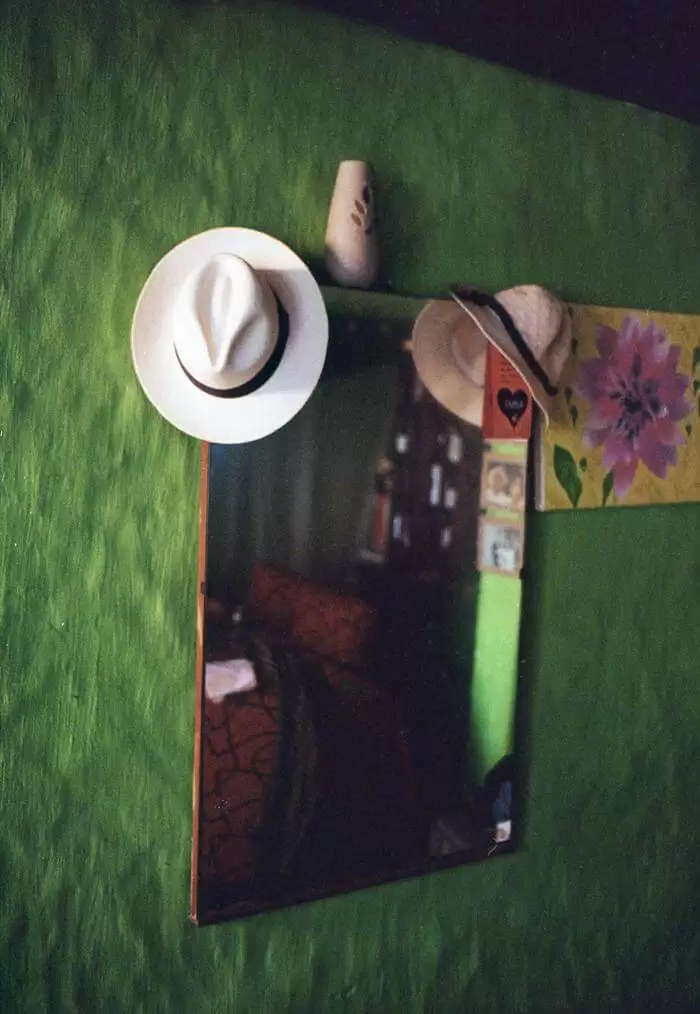
Q: The domestic environment is recurring in your photographs and portraits, why is that?
Paz Olivares Droguett: Because I photograph the environment, I’m currently in, when I choose what people to shoot, I allow them to decide where they want to be photographed. Most of the times, they want their picture to be taken in their houses because it’s the most comfortable place for them.
The picture above was taken at my mother-in-law’s house.
When I was working in Ilia, in Brazil, I liked a sentence of my curator “Yo fotografio la proximidad”: I photograph proximity, therefore the house. I capture every day, and I want to show the magic and the wonder of the day by day life. Usually, pictures of a photographer are connected to travels, war, the outside. Meanwhile, the presence of women during history was centred in the house, yet it did not get as much attention and visibility in photography and art.
Q: The collection Portales showcases an artistic technique of overlapping images, how does that play with someone’s imagination?
Paz Olivares Droguett: Portales is the project where I feel most free, where I work without limits. I started working on Portales when I went back to Chile: we lived close to the Caleta Portales, where fishermen would sell fish. Before that, I lived in Buenos Aires, and we didn’t have the sea. The first time I went back was terrific, such a surprise seeing my old house and neighbours, with a feeling of estrangement.
I started to work with the environment of Portales. When I was a child, I saw a big ship on its beach due to a strong storm. It was incredible, and it was like seeing a building on the beach. On YouTube, I found a familiar video regarding that time.
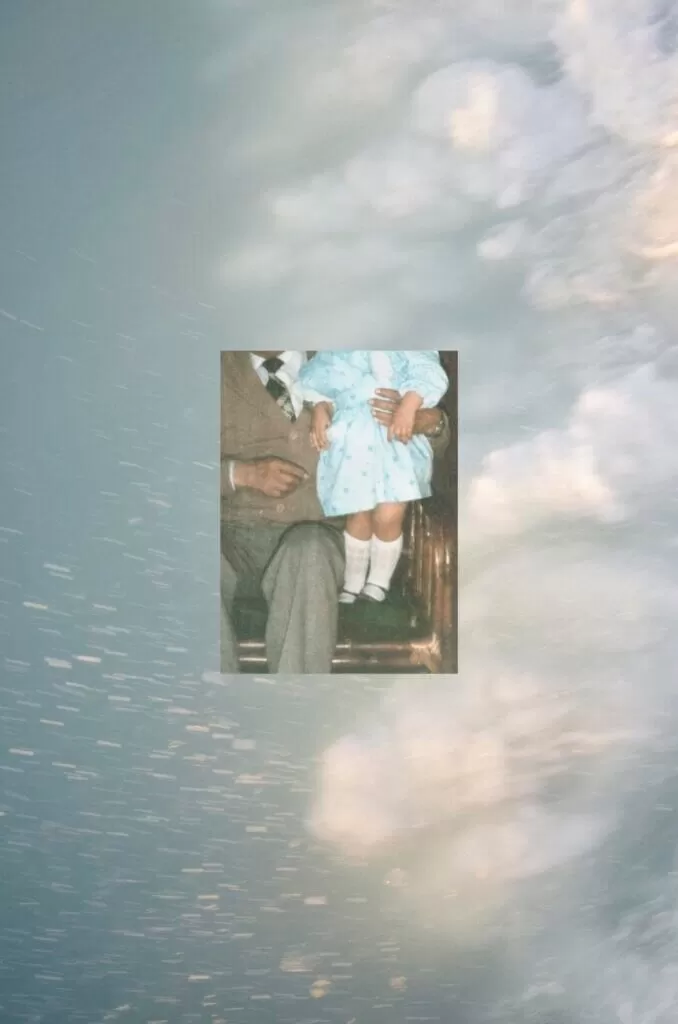
It was the day my grandfather died, so the event in Valparaiso matched with a very intimate event of my life, the death of my grandfather. Portales was born out of a long process. The images that overlap are a product of my subconscious. The word Portales, recalls a portal of the psyche, between the dead and alive, between what there is and what there isn’t. The sea is like a mystery like it is for the human. It is a symbol of living relationships and of what is in continuous transformation.
Q: What is your creative process behind the pairing of images for example in the collection Cuarentena?
Paz Olivares Droguett: It’s intricate. In this image mainly there is a trio: Matias, shadows and fruits. It is relevant to light and the message of the beauty of the everyday. It’s like a painting with a person, a detail and a form of being, like the still-life fruit. It is Capturing the beauty of the everyday.
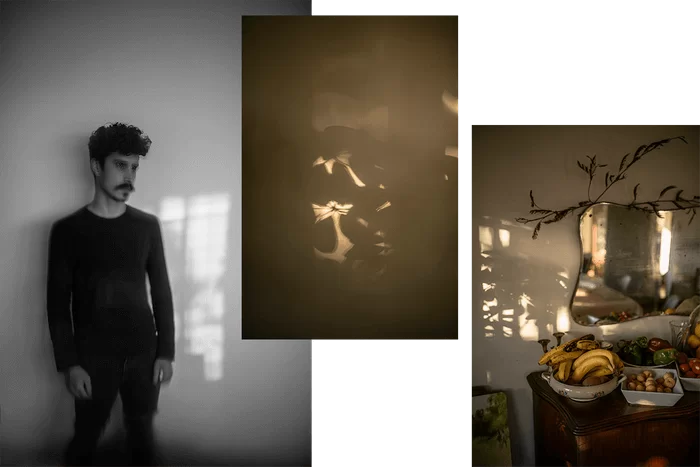
Now I am tired of being at home in quarantine, it’s been three months, and we don’t know when it will finish, some people said September or October. We went to my mother’s house, so the light and daily life changed too. My baby is four months old, and he has been in quarantine for most of its life. But I still take photos, and I still have a creative process.
Q:How has your relationship to nature developed from Meconio to today?
Paz Olivares Droguett: Before Meconio, I just took photos every day only to my post on my profile. From Meconio, I started to produce analogues. I always felt connected to nature, but when I began to produce Meconio, I completed my relationship with the environment.
I came back to nature, like the sea in Portales. This connection is also why I like taking pictures for Sexualidades Femeninas in nature. Nature is what we need to be human beings, to better what we are now destroying in life. In my work, birth and nature are always connected. Photographs affect people somehow because those people feel and read them as a form of being; this is very connected to nature, the environment and the atmosphere, which are all perceptible in the images
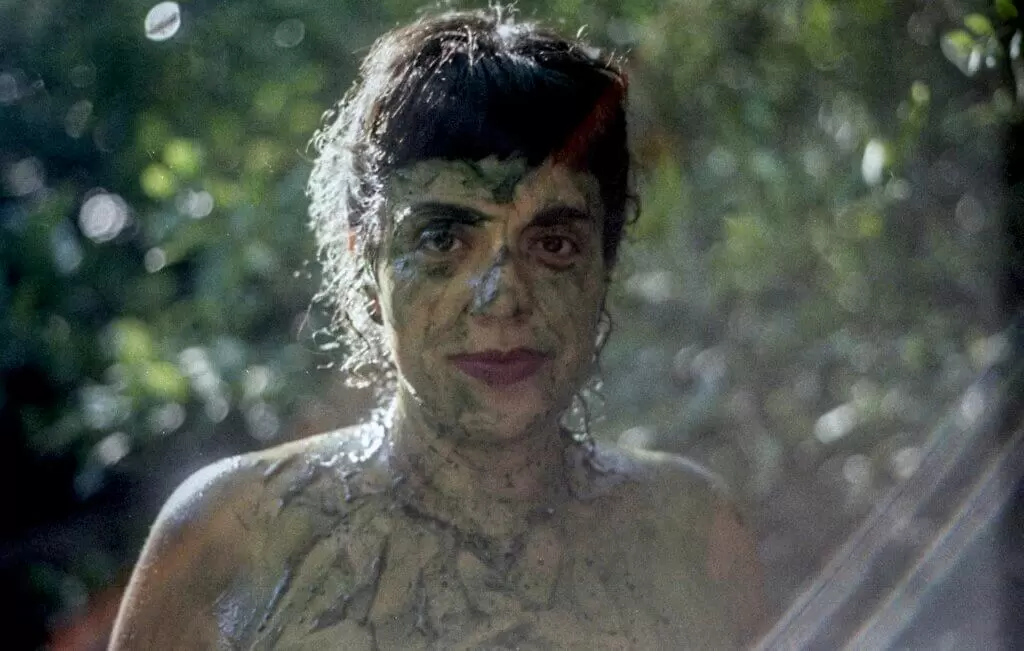
Q: What is the main driving force behind the project Sexualidades Femininas?
Paz Olivares Droguett: To appropriate and create from our subjective point of view as women, trans or non-binary. To appropriate of our own body, of our own desire, of how we look at the world and how we want to be seen by the world. We choose how to share our body. You can appear; however, you want. You choose how you are. You are representing the women that are subjects in pictures and also the women in general that see the photographs and can identify with them. When you are represented like this, you start believing in the woman as a sexual product.
This is a romanticized aspect of sexuality, when oppression tied to the misrepresentation of sexuality continues to exist, such as sexual violence and child marriages. Our sexuality is part of a market, its capitalized. History was written by and from men. In Sexualidades Femeninas I want to divest from this by having women create their own images.
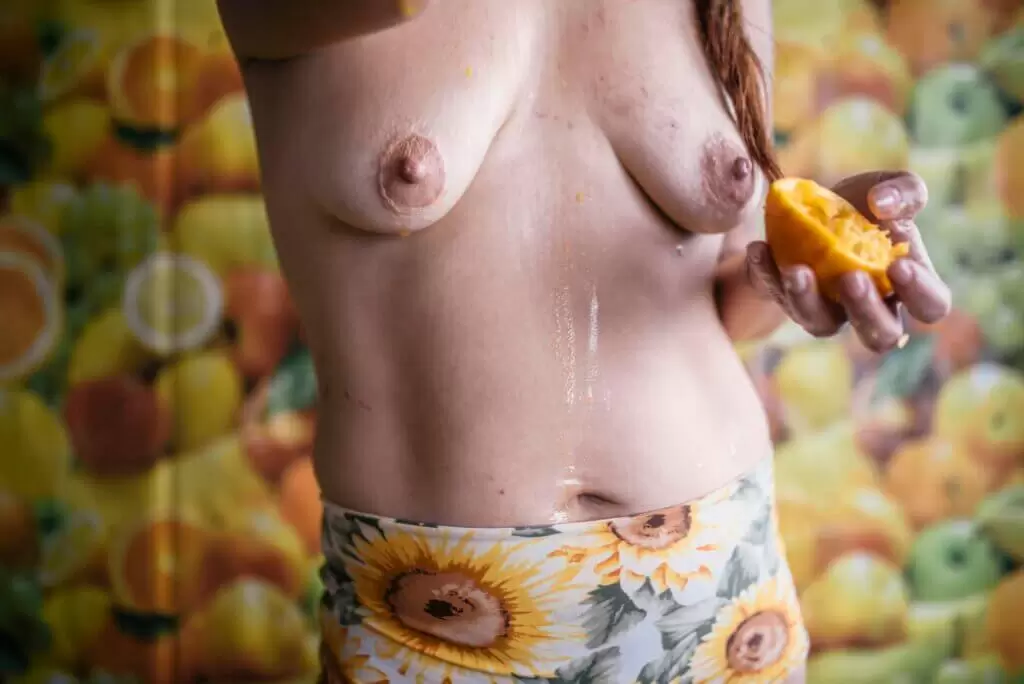
What for them individually is sexuality. The word “Sexualidades” is plural because there are lots of different sexualities that must be explored rather than just depicting one stereotypical. As the project developed, more people got closer to it as a way for looking for answers, so now it’s not just my objective but of others as well. There is an educative side to it, to depict a sexual education in its integrity and completeness. I use photography to build visibility for a need for a complete sexual education.
Q: In what ways do your photographies express an intergenerational relationship between the figure of the mother and daughter?
Paz Olivares Droguett: I decide what to photograph or not based on my daughter. I want things in this world to change for my daughter. She needs to grow up in a parallel world and feel free being herself, being able to love anyone and to use her body how she feels like. Water in Chile is private, the only country in the world; there is a lot to be changed for my daughter and son.
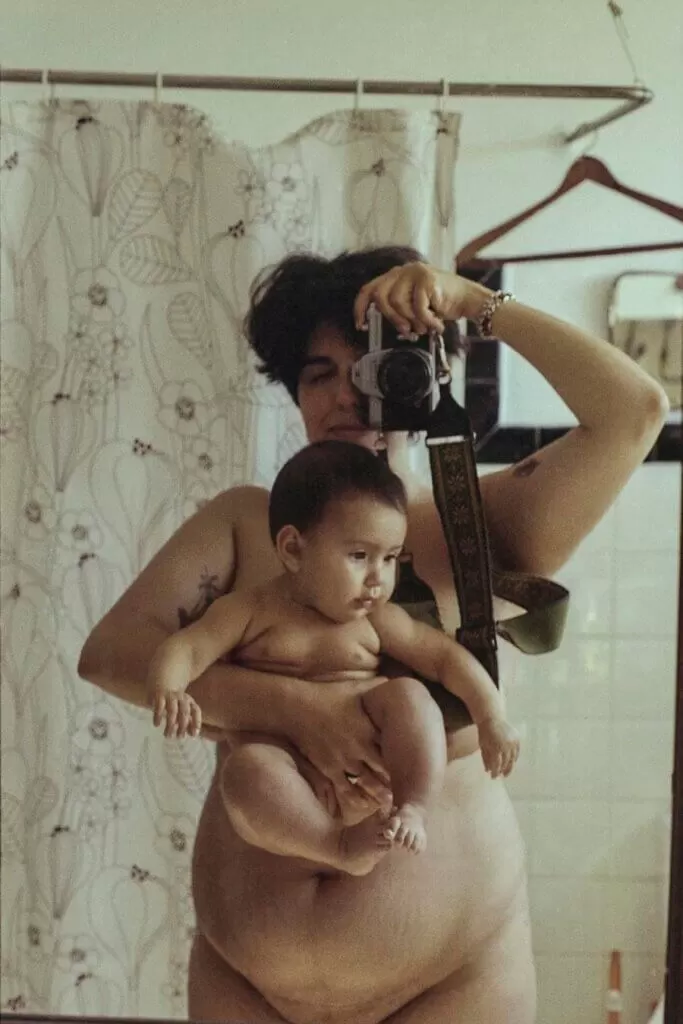
I need to contribute to change for my daughter and son. I want them to be happy. I want to give them a good example; therefore, I need to construct something better than what we have. I have conflicting feelings about this picture. I took this photo in our bathroom when we moved back to Chile, and my daughter was born in Argentina. We started a new life together, and I wanted to remember this moment. However, it may still be perceived as weird because we are naked. I don’t have a problem with being naked. But I still fear because people in the world think about it differently and perceive nudity differently.
Q: What do you think could be improved in the art industry?
Paz Olivares Droguett: I saw a documentary about the American Olympic gymnastics girls team. There are many cases of abuses by the adults towards the girls in that environment. One doctor abused of 500 girls. We need to grow up in a world in a world with more subjectivities of women, racialized women and trans that will contribute to art being more diverse. Because art is what goes towards vanguard because it opens new paths if art remains closed-minded to specific genders and countries we cannot go forward. We must stop referring to art as an “industry”, but instead as the vanguard and look at new ways of making. We must not look at it as an idea of the market but as a cultural and vanguard force.
This was emerging artist Paz Olivares Droguett to learn more about her work head over to her website link below
https://www.instagram.com/pazolivaresdroguett/
©2020 Paz Olivares Droguett, Lincoln Borwn


